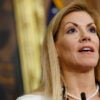Update: After this article was published, NPR announced that it would no longer be publishing new content on Twitter. “We are not putting our journalism on platforms that have demonstrated an interest in undermining our credibility and the public’s understanding of our editorial independence,” NPR said in a statement to The Hill. “We are turning away from Twitter but not from our audiences and communities.”
NPR will continue to post its content on TikTok, a Chinese-owned social media app that has been accused of spying on American citizens.
Why should American taxpayers be on the hook to pay for a highly partisan and ideological media outlet?
That’s an important discussion to be had after Twitter last week slapped a “state affiliated media” tag on National Public Radio’s Twitter profile. The move was met with much anger and frothing.
“NPR and our member stations are supported by millions of listeners who depend on us for the independent, fact-based journalism we provide,” John Lansing, NPR’s president and CEO, said in a statement. “NPR stands for freedom of speech and holding the powerful accountable.”
Uh huh. So, what do the powerful have to say about this situation?
White House press secretary Karine Jean-Pierre defended NPR, saying that while she wouldn’t comment on the specific policy, “there’s no doubt of the independence of NPR’s journalists.”
“NPR journalists work digitally to hold public officials accountable and inform the American people,” she continued.
A government official gushing about a media outlet is such an excellent way to disabuse people of the notion that it’s connected to the state.
Twitter sort of backed down on Sunday, changing the NPR label to “government funded media” instead of “state affiliated media.” This is a good step, though. NPR may not be the Tehran Times or Russia Today, but it does get significant backing from the American taxpayer despite its increasingly narrow appeal.
NPR may not be directly tied to elected government officials—it certainly didn’t give President Donald Trump favorable coverage—but it’s not quite “independent” either. In many ways, it conforms with the ideologically zealous, bureaucratic leviathan that now operates on behalf of leftist causes. It’s part of an increasingly incestuous ecosystem of large government, nonprofit, and corporate actors bound together by both financial and ideological interests. The “regime” continues with its agenda regardless of who is in the White House or what party controls Congress.
Such is the price we pay for departing from limited, constitutional self-government.
If you’ve listened to NPR’s programming in the last few years, it’s become obvious who its programming caters to. In 2021, independent journalist Matt Taibbi wrote that “NPR has not run a piece critical of Democrats since Christ was a boy.”
This was just after NPR changed its policy to let its journalists engage in direct activism. As you can imagine, this didn’t lead to NPR reporters showing up at the annual March for Life.
It’s impossible to get around the fact that NPR’s programming is of the Left, by the Left, and for the Left. Programming appealing to listeners more broadly is disappearing.
“Car Talk” ended in 2012, and most of its new shows are dedicated to left-wing obsessions revolving around race, identity, and sexuality. The whimsical and more broadly appealing programs have been replaced by highly politicized ones.
As with so many other left-leaning outlets in the last few years, NPR has become a parody of itself.
The question is: Why should Americans be paying for this?
If NPR is so concerned with being labeled “state affiliated media,” it should cut ties and go truly independent. After all, according to NPR’s online defenders, the news organization gets less than 1% of its budget from the federal government.
Surely, this small amount of money isn’t worth the tussle with Twitter and the animosity from Americans who don’t listen to and certainly don’t want to pay for their programming. Ah, but it is.
It’s true that only a small percentage of federal money goes directly to NPR, but that’s not the whole story.
Congress appropriated $465 million to the Corporation for Public Broadcasting in 2022 and the corporation distributed a significant number of grants to local NPR affiliates out of that pot of money. The direct federal funding is the tip of the iceberg. What kind of programming is CPB distributing grants to?
In 2022, for example, CPB gave a $600,000 grant to “Code Switch,” which is NPR’s self-described “signature podcast on race and identity.”
This show had episodes on how women in hip-hop push back against the “male gaze” and “fantasy worlds that still had racism, classism and other ills of reality.”
NPR recently had to go through some layoffs and canceled some of its woke podcasts. Even NPR’s audience seems to be getting tired of this stuff. I challenge you to read through descriptions of episodes on the now canceled podcast “Invisibilia” without laughing.
These are the stories NPR finds important. The Hunter Biden laptop report on the eve of the 2020 presidential election was considered a non-story, dismissed as Russian propaganda. Of course, NPR’s mea culpa happened long after the election was over. So much for holding the powerful accountable.
NPR essentially operates like one of those old-fashioned partisan affiliated publications that were common in the 19th century. Back in the day, partisan newspapers received patronage through government printing contracts. This allowed them to operate even if they weren’t particularly popular. Does that sound familiar to a certain public media network today?
The issue here isn’t just in the dollar amount going to NPR programming. The real problem is that a media organization falsely calling itself “independent” and “fact based” is working on behalf of one side of the ideological spectrum with our money.
And some of that programming isn’t just ridiculous, it’s downright repugnant.
Twitter did us a great public service by hopefully opening the public’s eyes to what NPR really is.
Does anyone really think that NPR represents a general public good at this point? If the news network wants to serve a very narrow, partisan demographic, that’s fine. It should start doing that on its own.
President Joe Biden and Democrats are happy to keep this gravy train going. If anything is going to be done, it’s up to Republicans to draw the line and start saying “no.” They had a chance in 2017 with Trump in the White House and majorities in both houses of Congress. Funding was reduced, but it nevertheless continued.
Republicans need to wake up to the reality of how public and private institutions have been corrupted, how they are being turned on and at times weaponized against conservatives and anyone who opposes the establishment left. At the very least we need to stop literally funding the Left with our money.
Have an opinion about this article? To sound off, please email [email protected] and we’ll consider publishing your edited remarks in our regular “We Hear You” feature. Remember to include the url or headline of the article plus your name and town and/or state.































